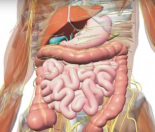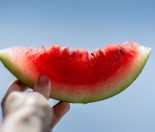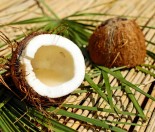In this article we’ll explore some causes and effects of constipation, and I’ll also give you 16 natural ways to reduce constipation; a common complaint in the Western world.
Do you go every day? As a general rule, you should have at least one, preferably two, motions daily, and not too far away from your meals either. If you don’t have at least one bowel motion each day, or if you have inconsistent motions – in terms of how often (frequency) and how they look (texture) – then you may have constipation.
I have yet to find a case yet which cannot be corrected with natural methods, and over 90% of constipation will respond to simple adjustments in lifestyle.
The doctor’s answer is generally either a laxative, or a fibre supplement like Metamucil®. I’ve got a better idea, let’s find and treat the actual cause of the constipation.
Some practitioners would define constipation as the passage of a hard stool. Whilst another therapist I once knew told a patient that it was perfectly acceptable for her to have a bowel motion every ten days, if that was normal for her!
In my opinion, it is the frequency and texture of your bowel motions which are all important factors, not the term constipation, which will always remain arbitrary.
The frequency of bowel motions (how often you go) is important because it tells me how good your gut is functioning, and also how well your ‘gastro-colic reflex’ is working. Of course, we’re not taking account here if you have acute diarrhoea from an infection or parasites, giardia, appendicitis, etc.
When you eat food it passes from your mouth down the oesophagus and into your stomach. The stomach then tells the colon to empty, and this is why (you should) after a meal feel like going to the toilet. This communication between the top end of the digestive system and the bottom end is called the ‘gastro-colic reflex’. In other words, the top tells the bottom that it must empty, because there is food coming down its way.
The Eyeball Test
Ok, let’s get over it, poo, bottoms, toilets – this is an area we are not comfortable with, let alone talk about. Do you ever look at your bowel motions?
I call this “the eyeball test”. It surprises me how many patients I speak with do not look at their motions. Do look regularly, as it will give you a valuable insight into how your digestive system is functioning.
The texture of the stool is important, and will determine not only how easy the motion is passed, but can also tell us a lot about the actual health of your digestive system. The longer a motion is in the bowel, the more likely that it will become increasingly dry by way of the bowel absorbing water from it, and therefore make the motion much more difficult to pass.
Very loose stools on the other hand, can pass much too easily, and have not been long enough in the bowel to firm up — you will know all about this with a campylobacter infection.
Take a look at the Bristol Stool Chart, it was developed by Dr. Heaton at the University of Bristol and was first published in the British Medical Journal in 1990.
If you are in category 1 – 2, you are quite constipated indeed. If you’re very used to type 4’s, this may not be such a good sign either. This tells me you are having problems with peristalsis and/or constipation, particularly in the recent past.
Peristalsis basically means a distinctive pattern of smooth muscle contractions that propels foodstuffs through your esophagus and intestines. Stress has quite an amazing effect here, and this is why many will be able to relate to snake like motions – periods of stress have a potent effect on impairing the peristaltic effects in your bowel.
Perhaps you felt “gutted” about something? Stress draws blood away from the gut towards the muscles. This in turn can slow digestion and peristalsis down considerably, then constipation occurs. Will a laxative work here? Don’t waste your time, try a chill pill instead.
Have you noticed that when animals eat, many will want to have a motion not long after? You will commonly find this with young children as well. They have a very active gastro-colic reflex, and in my experience the elderly have a poor one.
As adults, many unfortunately “hang on” until the last minute – we all have something too important, and go to the toilet when it is more convenient to actually do so. I have found this to particularly so with the always busy people with occupations like real estate, taxi, truck or courier drivers, shop keepers, etc. Many have consulted me over the years with bowel issues – generally constipation.
If you ignore the subtle signs of ‘needing to go’ long enough, your bowel can become quite lazy, and so will you. And then when you really want to go – your bowel won’t! So what are you going to do from now? — If you feel like going, you should GO.
Constipation Causes – Diet and Lifestyle
The most common cause of constipation in Western culture would have to be a lack of dietary fibre combined with a poor sedentary lifestyle.
I can remember years ago reading a book about the San Bushmen of the Kalahari Desert in Africa. These little bush people are hunter-gatherers who for many thousands of years have supported themselves living in the desert. They hunt mainly various kinds of antelope, but their daily diet has always consisted more of the fruits, nuts and roots and seeds which they seek out in the harsh desert.
It has been found that the bushmen pass many small motions daily, rather than their Western counterparts, who go on average once daily. The bushmen rarely if ever suffer from any type of digestive problem because of their naturally whole food and high fibre-based diet.
We have not only slowly reduced our fibre intake over the years, and eaten a diet increasingly high in processed foods with substantial amounts of sugar, salt and fat, we have also adopted strange diets to control our weight which include little fibre, low carbs and high protein.
Constipation causes
Improper chewing of food
Not paying attention with eating: watching TV or reading whilst eating. This can be a real problem, is this you? If you are finding it difficult to go and you can relate to the TV watching or reading– just turn the TV off or stop reading while you eat! Chewing food to a fine particle size makes sense – it facilitates digestion and absorption, improves peristalsis and bowel function. A quote from the Bible: “Chew your grains until they are liquid”.
Dehydration
Dehydration – not enough water. Probably one of the most common of causes. Aim for 30 mls per kg of bodyweight each day when the weather is hot. You may not be having anywhere near that amount, particularly if you have been quite constipated for years.
Insufficient Dietary Fibre
The diets above may well fall into this category — too much protein and too little fibre. Keep your fluid intake high and make sure you eat ample fibre.
Long periods of immobility, stress or depression
Having regular bowel motions to me is a bit like a woman having a regular period. It comes in cycles, and when things go well they tend to stay well – until something happens. If you have recently had problems in going, look what happened just recently. A change in lifestyle? A separation or divorce, change of occupation? Did you start new medication?
Medication
Loperamide is an anti-diarrhoea drug which reduces peristalsis and increases intestinal transit time, causing constipation in some. Codeine & morphine are used to control pain, but also unfortunately reduce the motility of the stool, and some antidepressants do this as well. Even aspirin can seriously affect the digestive tract, particularly the stomach, liver & small bowel. You may want to get your medications checked out carefully to see if they are a factor in your constipation. So many drugs affect your liver’s function, and can cause congestion here.There will be alternatives to drugs in case there is a constipation connection.
Gallbladder problems
This is an area that comes up so often in the clinic. The 4 F’s – flatulent, forty, fat and fertile. Is that you? I find that many women aged between about 35 – 45, they may like chocolate, wine & nibbles like cheese & crackers, and this group is often affected with constipation or a sluggish bowel. When the gallbladder becomes sluggish, your bowel slows down. Bile is produced by the liver & stored in the gallbladder & helps to soften the stool and facilitates excretion.
Gallbladder removed? – then take digestive enzymes, e.g., fats & oils are not digested/absorbed well by these folk. Take a digestive enzyme when you take a fish-oil supplement, or Vitamin A. Remember the eye-ball test – After you go to the toilet, look! Herbs are awesome here – see your herbalist.
16 natural ways to reduce constipation
Eat smaller, more frequent meals and avoid overeating at one sitting.
- Take time to eat, breathe slowly and chew food thoroughly.
- Try beans as kidney and chick peas, lentils, fresh fruit and vegetables, dried fruits (not too much), If you’re not used to eating a lot of fiber slowly increase your intake as you may initially have increased flatulence, gas. Soaking beans first in water (and freezing them after soaking) and discarding the water you soaked them in, may help to reduce flatulence from this group. A hot tip I picked up in the States: add a few drops of Lugol’s Solution ® or potassium iodide to the water when you soak beans – you will have less gas. It really works! (unless you are allergic to iodine)
- Reduce your caffeine intake as caffeine may promote constipation by causing you to lose fluids.
- Add unprocessed oat bran to hot cereals and yogurt. Eat bran cereals or shredded wheat, foods made with whole grains.
- Foods that lubricate the intestines – beet, okra, kiwi fruit, seaweed spinach, sesame seed & oil, honey, pear, prune, peach, apple, apricot, walnut, pine nut, almond, alfalfa sprouts, carrot, cauliflower
- Foods which promote motions – cabbage, papaya, peas, sesame seeds, coconut, kumara, asparagus, figs, kiwifruit
- Herbs & foods that soothe the intestines – marshmallow root, flax seeds, fenugreek seeds, psyllium seeds, licorice root, slippery elm bark
- Good bacteria enhancing foods – miso, sauerkraut, yoghurt, kombucha mushroom, kefir, quark
- Decrease intake of saturated (animal) fats (animal and increase essential fatty acids (cold-water fish, nuts, and seeds). It is best to take Omega 3 (arctic cod liver oil) daily in small amounts
- Eat more fresh fruits, vegetables and whole grains. Basic stuff, but often taken for granted.
- Drink more water. Warm lemon water taken before meals stimulates digestion. Try the juice of ½ a lemon in water in the morning before breakfast. REMEMBER to drink plenty of liquids. You need more fluid particularly when you have more fiber, for fiber to work effectively.
- Stewed or soaked prunes, 1 to 3 a day, have a slightly laxative effect. Prune tea – 3 prunes in a 250ml cup, add boiling water, leave stand until warm, drink & eat the prunes. Have 1 cup per day.
- Flax meal, 1 heaping tsp. in 8 oz. of apple juice, provides fiber and soothes the digestive tract. Follow with an additional 8 oz. of water. LSA mix is excellent too. Slippery elm bark powder is good, but is a bit pricey lately.
- Aloe Vera – Take 10 – 30mls twice daily in a glass of water before meals.
- Colonic hydrotherapy – I have solved very tricky cases of constipation with recommending a course of colonics plus other complementary and alternative methods of healing. There is no question about the huge difference a professional colon therapist can bring to the patient by utilising colon hydrotherapy.
- Liver and bowel detox. Go and see your practitioner, you will be glad you did. And, you’ll probably lose a fair amount of weight as well. Some of my favourite herbs here are Artichoke, St Mary’s Thistle, Picorrhiza and Tumeric.
For more great advice on common food-related complaints, check out our Health and wellbeing section.







